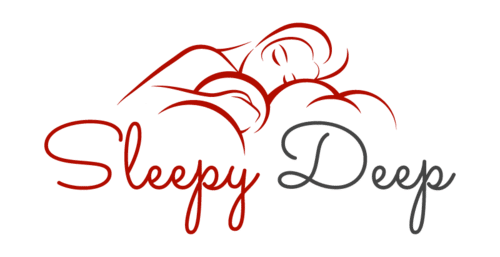📚Technology Can Help You Sleep Better: Here Are 5 Ways How!
Ensuring you consistently get a restful night's sleep is critical for anyone looking to live a satisfied and joyful life. Sadly, numerous individuals struggle with various sleep disorders that hinder their ability to fully relax and recharge overnight.
One of the reasons why some people cannot fall asleep quickly at night and stay asleep for long enough is technology. We spend so much time on our phones, laptops, and in front of TVs that our brain does not know when it should start dozing off.
However, as nothing in life is one-sided, technology can also help us sleep better, even if it sounds contradictory. Scientists have devised numerous technological solutions that prevent or alleviate common sleep disorders. Here are some of them!
It Stops You from Snoring
Snoring is one of the most common sleeping disorders out there. Even though it has become quite normal to hear someone snore, it is actually not a healthy behavior. People who snore may wake up both themselves and other people around them. We all know those frustrating moments when we’re in the room with someone who is snoring violently and we need to get a good night’s sleep before an important event in the morning.
At least 40% of men snore, joined by around 20% of women. That means that around 2 billion people on earth have this problem and at least another 2 billion suffer next to them.
The three best ways in which technology can help with snoring is with these devices: Hupnos Snoring Mask, Philips SmartSleep Snoring, and Urgonight EEG Headband. The contraptions are worn during the night and encourage the sleeper to change their sleeping position when they start snoring.
Prevents Sleep Apnea
Sleep apnea can be both annoying and dangerous. It’s a sleep disorder which causes the breathing to be repeatedly stopped for a couple of seconds during the night. People usually wake up violently from sleep when this happens, gasping for air. At least 22 million people in the USA suffer from sleep apnea.
Luckily for them, science has found clever ways to help them with high-tech solutions. The three best devices that most people use to deal with sleep apnea are called SlumberBUMP, BiPAP, and EPAP Technology - Theravent.
These either train people to sleep on their sides, or prevent the airways from getting blocked by exerting additional pressure with each inhalation and exhalation. They have proved to be quite effective.
Tech Can Relieve Your Insomnia
Did you know that almost everyone suffers from insomnia at least once in their lifetime? This sleep disorder can happen acutely, before some important and stressful event, or chronically. If insomnia is chronic, it may last for weeks, months, or even years. Of course, the person sleeps during this time, but the sleep they get is usually not enough to help them to function properly during the day.
Our personal favorite technological solutions that you should refer to if you are struggling with insomnia are called Sleepio, Ebb Insomnia Therapy, and Good Night Biological LED Bulb. These either help users analyze their sleep and create better sleep patterns, lower the temperature of a specific part of the brain, or use light therapy to help them fall asleep.
It Will Help You Deal with Narcolepsy
Not many people suffer from severe narcolepsy, but many could be classified as mild narcoleptic persons. Narcolepsy is a disorder that causes excessive sleepiness during the day, but it differs from normal fatigue. People who suffer from narcolepsy get sudden “sleep attacks” which they sometimes cannot control and may fall asleep in dangerous situations. These attacks may last from seconds to minutes.
If you or someone you know is dealing with this serious sleep disorder, you should know that you have technology on your side. The tech devices that we believe could help you are called LED Skylights, Verilux HappyLight Deluxe, and Day-Light Sky.
As you can guess from their names, all three use light therapy to mimic the natural light and help the brain feel more awake during the day. These therapies also improve energy levels, mood, and concentration, so they pack a powerful punch.
You Won’t Grind Your Teeth Anymore
The condition in which you grind, clench, or gnash your teeth is called bruxism. It is extremely unpleasant to hear someone do it next to you at night, but it is even worse for them. Apart from being annoying, bruxism can also severely damage the teeth, the joints in the jaw, and the muscles.
Those who suffer from bruxism should consider using high-tech devices to help them out. The three best-rated out there are called Bruxi, BruxRelief, and SleepGuard. They will give you and the people sleeping next to you peace at night and protect your health.





